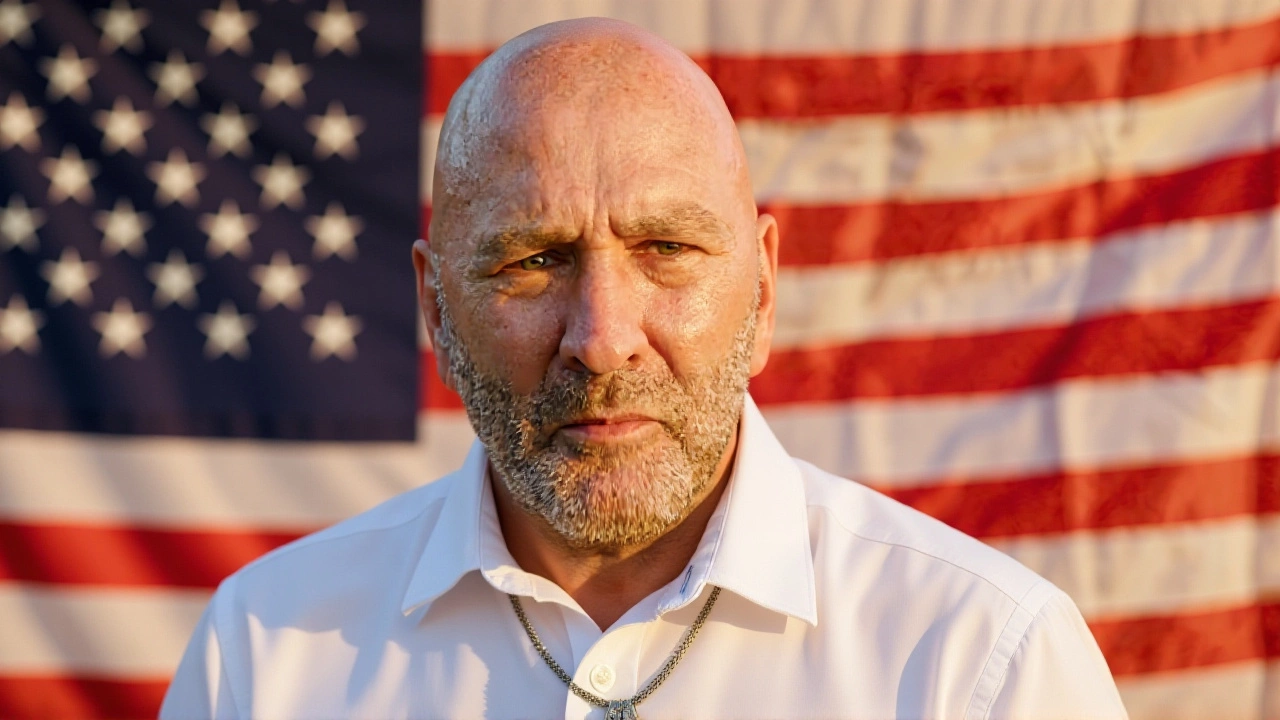
On September 10, 2025, Charlie Kirk, the 31-year-old founder and CEO of Turning Point USA, was shot and killed on a university stage in Orem, Utah. He was mid-debate on mass shootings and transgender individuals when a gunman opened fire from a nearby rooftop. Graphic video of the killing spread instantly across Bluesky, YouTube, Meta, and Reddit — but it wasn’t just the violence that shocked the nation. Within hours, some users began celebrating. Memes appeared: "Do Trump next," "Elon next please," and even religiously themed posts calling Kirk a "sacrifice to our Lords Smith & Wesson."
The Aftermath: A Nation Divided Over Online Speech
The killing triggered an unprecedented wave of online outrage — but not just against the shooter. People who praised the murder, or even joked about it, became targets themselves. By Friday, September 13, Utah Governor Spencer Cox, a Republican, stood before cameras in Orem and called social media "a cancer on our society." He urged Americans to "log off, turn off, touch grass, hug a family member." His words went viral — not because they were radical, but because they echoed what millions felt but couldn’t say.
Then came Clay Higgins, the Louisiana congressman known for his fiery rhetoric and unapologetic conservatism. On September 15, he sent a formal letter to the CEOs of every major social media platform. "Please be advised," he wrote, "that your platforms are rightfully expected to expeditiously remove all posts that have celebrated the political assassination of Charlie Kirk. Further, the authors of these posts are to be identified and banned from your platform, as well as any new pages they may create."
He didn’t stop there. "Gleeful celebration of the heinous murder of an American citizen... is not to be tolerated within the accepted and legal parameters of a free and humane society," Higgins continued. "If you shield these offenders, Section 230 will not protect your platform from vigorous exposure."
That line — referencing the law that shields platforms from liability for user content — was a threat. Not just legally, but politically. It signaled the start of a potential congressional crackdown.
Who Got Fired? The Ripple Effect of a Single Post
It wasn’t just social media companies facing pressure. People lost jobs. Entire careers unraveled over a single comment.
An NPR analysis on September 13 found that over thirty people across the U.S. had been fired, placed on administrative leave, or investigated for social media posts related to Kirk’s death. In Florida, school districts moved swiftly. One teacher in Clay County was suspended after sharing a sarcastic meme. Dozens more were called in for questioning. An Office Depot employee in Florida was let go after writing, "Good riddance," in a private group chat. Office Depot responded: "This behavior is unacceptable and insensitive."
Even foreign nationals weren’t safe. Deputy Secretary of State Christopher Landau told reporters his office was reviewing the social media activity of non-citizens who posted about the assassination. "Visa revocations are on the table," he said. "We do not condone incitement to violence, no matter where it originates."
Meanwhile, right-wing influencers like Laura Loomer launched crowdsourced investigations, urging followers to report "offensive" posts. The irony wasn’t lost on critics: Kirk himself had once encouraged his followers to report liberal commentators, including after the attack on Paul Pelosi. Now, the same tactics were being turned against his own supporters.
Free Speech vs. Hate Speech: The Legal Tightrope
Amid the calls for bans and purges, legal experts warned of a dangerous precedent.
David Kaye, a law professor at the University of California, Irvine, specializes in free speech and digital rights. "Political violence has no place in a democracy," he said. "Celebrating it is morally repugnant. But we cannot let outrage override principle."
Kaye pointed out that many of the posts being targeted weren’t incitements — they were critiques. "Some people are asking whether Kirk’s rhetoric contributed to this moment. That’s not celebration. That’s debate. And in a democracy, we don’t silence debate because it’s uncomfortable."
He added: "The result of this frenzy is that people who want to critically examine Kirk’s legacy — his influence on the far right, his framing of gun rights, his demonization of trans people — are being silenced. That’s not justice. That’s censorship by mob."
On X (formerly Twitter), Elon Musk posted: "The Left is the party of murder." The post, like others, was riddled with conspiracy theories and racially charged tropes. Yet it remained live. Meanwhile, posts from left-leaning users mocking Kirk’s death were swiftly removed — or worse, the users were doxxed and threatened.
What’s Next? The Legal and Cultural Fallout
The investigation into Kirk’s killing is ongoing. Authorities have not yet named the shooter, though Utah officials confirmed an arrest was made by September 13. But the real battle isn’t in court — it’s in the court of public opinion.
House Judiciary Committee members are already drafting legislation to redefine "incitement" in the digital age. Some propose a new category: "celebratory violence posts." Others want to amend Section 230 to require platforms to remove content within two hours of being flagged.
Meanwhile, universities are rethinking their social media policies. Florida’s public colleges are now requiring faculty to sign agreements banning "derogatory commentary on deceased public figures." Students are being asked to attend "digital citizenship" workshops.
And in Orem, where Kirk died, a small vigil has taken root. No politicians spoke. No cameras rolled. Just a circle of students — some who admired him, others who despised him — holding candles and saying nothing at all.
Why This Matters
This isn’t just about Charlie Kirk. It’s about what happens when grief, rage, and outrage collide on a platform designed to amplify emotion, not reason.
Platforms like Bluesky and Reddit are being asked to act as judges, juries, and executioners — all without due process. And the public, hungry for justice, is cheering them on.
But history shows that when we start punishing speech because we find it offensive — even when it’s vile — we don’t make society safer. We make it quieter. And in silence, the real threats grow louder.
Frequently Asked Questions
Why is Clay Higgins demanding social media bans for people who celebrated Kirk’s death?
Clay Higgins argues that glorifying the murder of a U.S. citizen crosses a legal and moral line, especially when posts include threats against other public figures. He believes platforms must act under threat of losing Section 230 protections — a legal shield that prevents them from being sued for user content. His letter is both a moral appeal and a political warning: if platforms don’t self-police, Congress will force them to.
How many people have been punished for social media posts about Kirk’s assassination?
According to NPR’s September 13 analysis, over thirty individuals across the U.S. have faced consequences — including firings, suspensions, and investigations. At least one teacher in Clay County, Florida, was suspended, and an Office Depot employee was dismissed for a private comment. The number continues to rise as schools and employers review social media activity.
Is it legal to ban people for celebrating a political assassination online?
Yes — private platforms like Meta and YouTube can ban users for violating their terms of service, even if the speech is protected under the First Amendment. The First Amendment restricts government censorship, not private companies. But critics warn that when companies act under political pressure, it blurs the line between moderation and coercion, potentially chilling legitimate criticism.
What’s the difference between celebrating violence and criticizing a person’s legacy?
Celebrating violence means rejoicing in the death of a person — like posting memes that say "Do Trump next." Criticizing a legacy involves analyzing their ideas, influence, or rhetoric — like asking whether Kirk’s inflammatory language contributed to a culture of hostility. The former is widely condemned; the latter is essential to democratic discourse, even if uncomfortable.
Could foreign nationals lose their U.S. visas over social media posts about Kirk?
Yes. Deputy Secretary of State Christopher Landau confirmed that visa revocations are being considered for non-citizens who posted incitements to violence or glorified Kirk’s murder. While rare, the U.S. has previously revoked visas for hate speech that violates public order. This would mark a significant expansion of that policy into the realm of online political commentary.
What’s the risk of over-policing speech after events like this?
The risk is normalization. When platforms and employers punish speech based on emotional reactions rather than clear legal standards, it sets a precedent where any unpopular opinion — even thoughtful critique — can be labeled "toxic." Experts like David Kaye warn this erodes free expression and empowers mobs to dictate what can be said, not law or reason.
